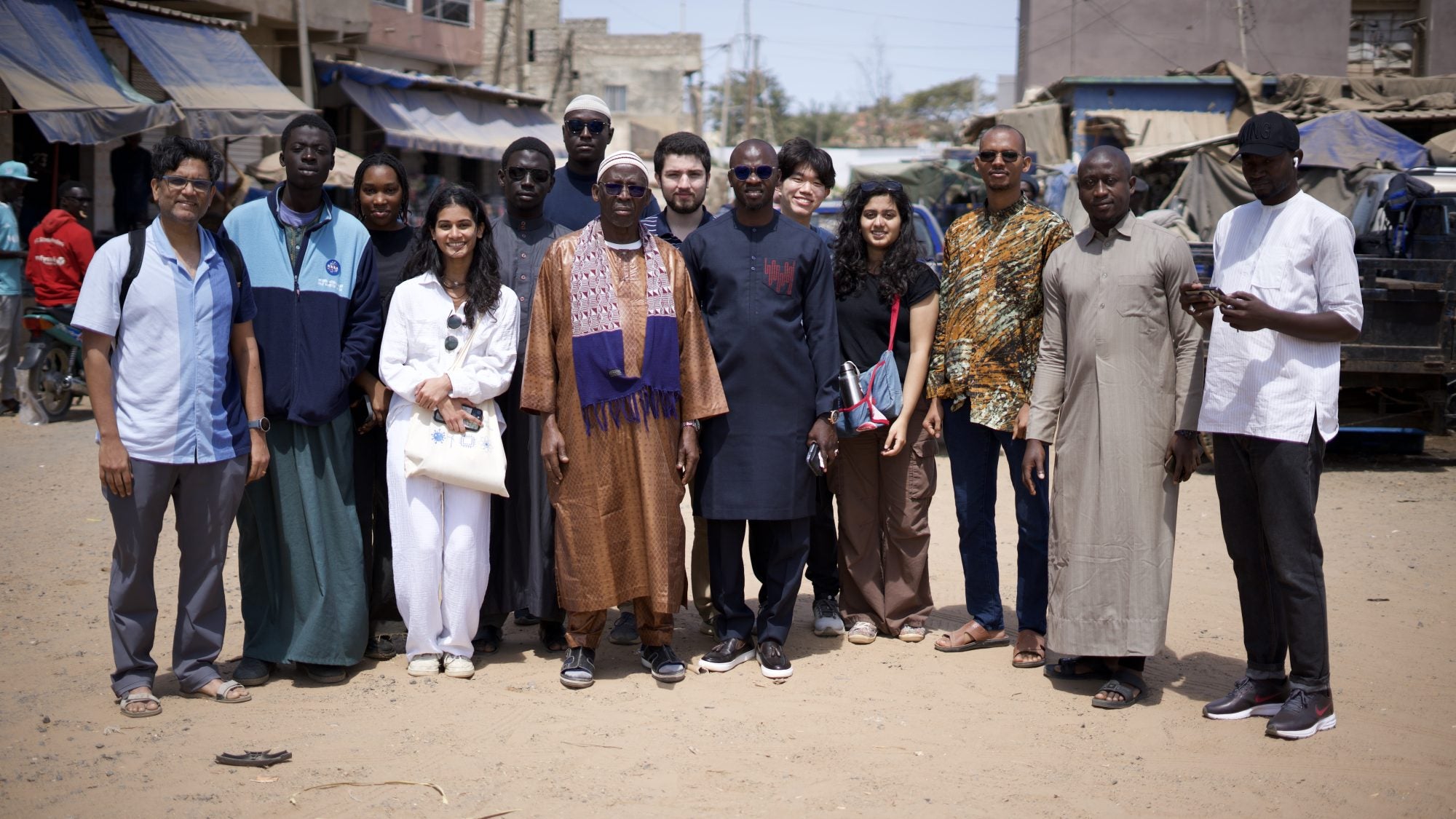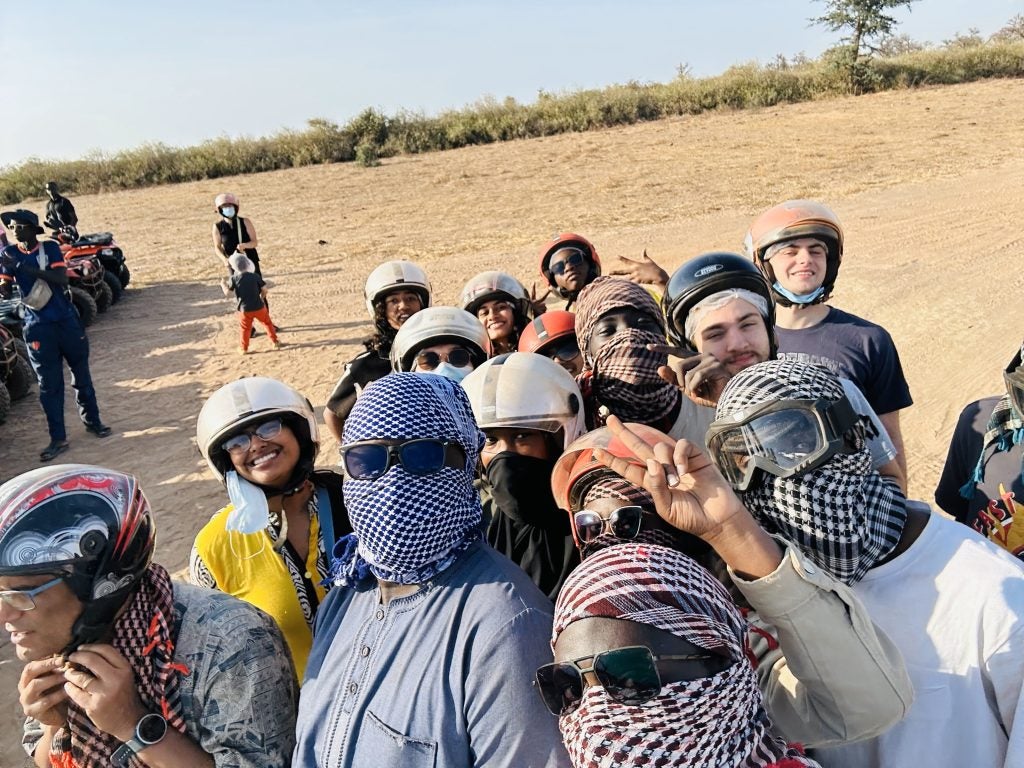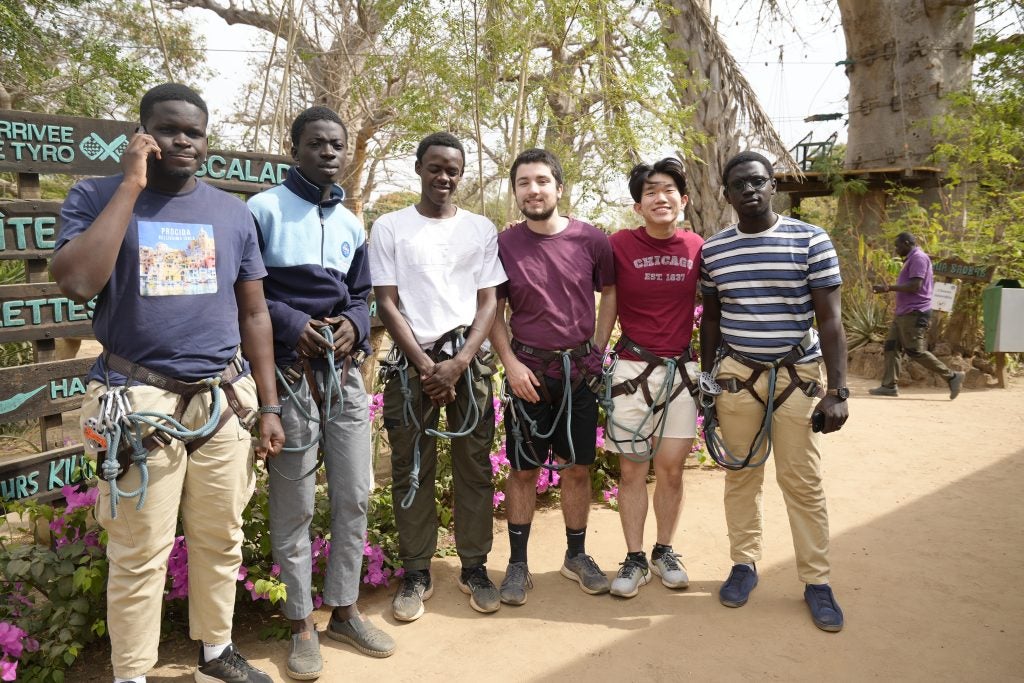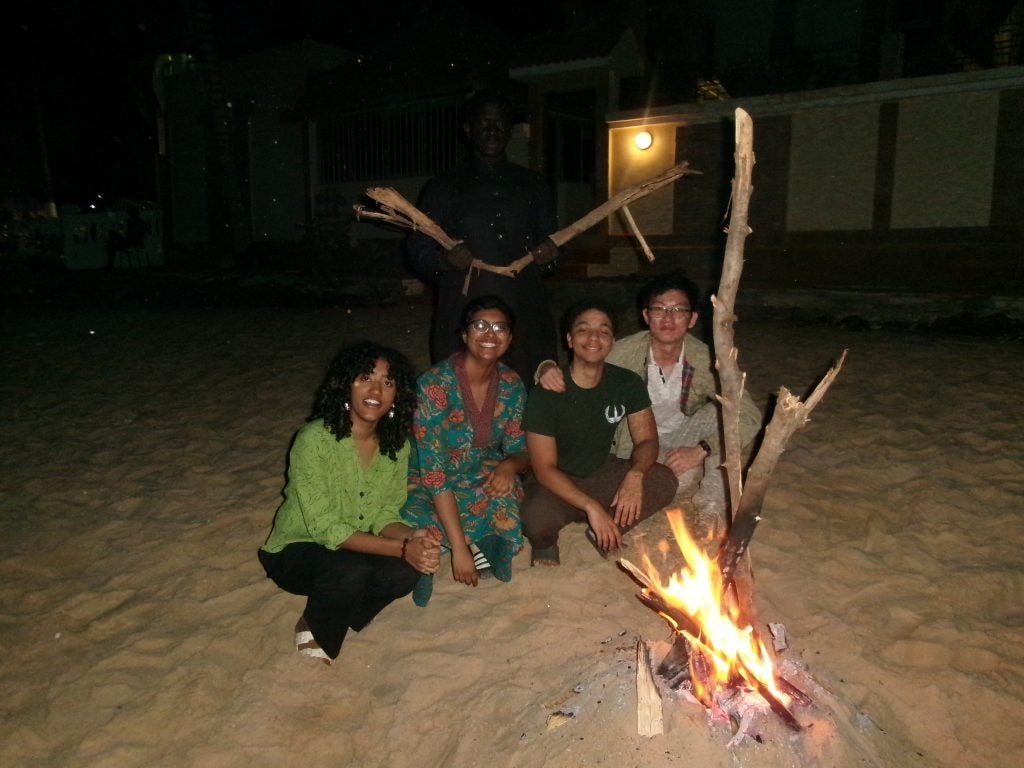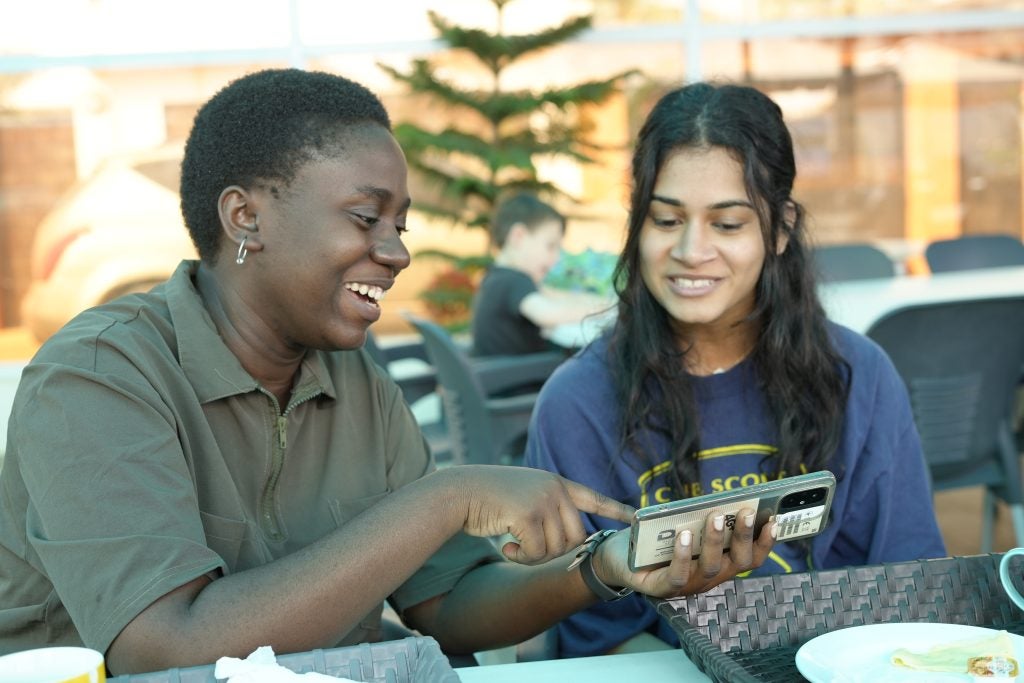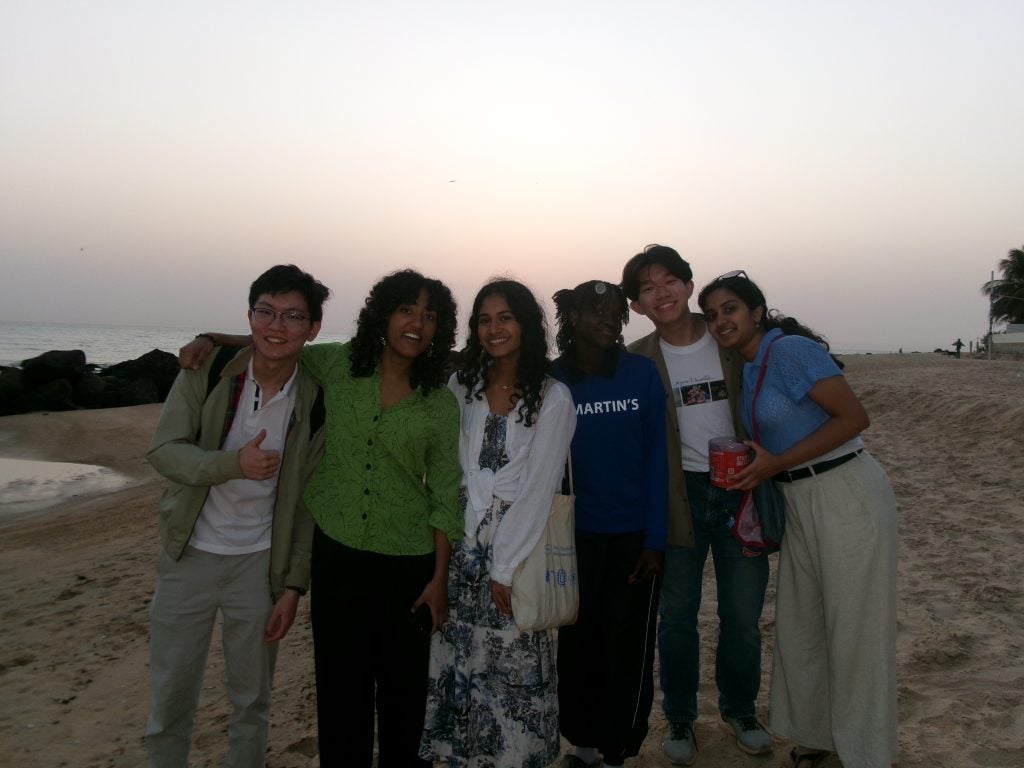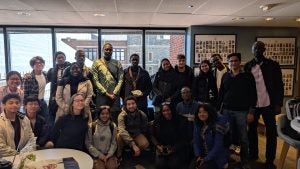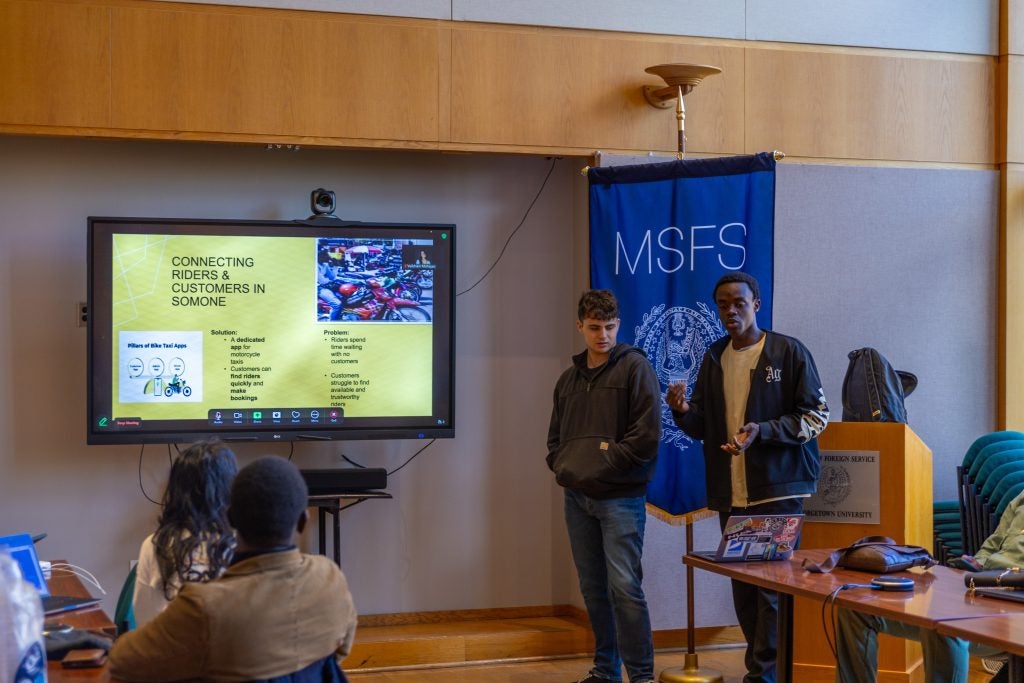Throughout the year, many college students embark on immersion trips around the world to experience new cultures and complement their classroom learning.
Rajesh Veeraraghavan, an associate professor in the School of Foreign Service, wanted to turn that thinking on its head when he designed a new class, Senegal: Public Interest Technology.
“It’s not a typical class where American students go to different parts of the world and spend their spring break and learn about the culture, which is valuable,” Veeraraghavan said. “The class here is more symmetric, meaning it’s not just us going there. It’s also the Senegalese students coming here.”
The result is a Centennial Lab in partnership with the Dakar American University of Science and Technology (DAUST), an engineering university in Senegal. The class is led by Katherine Chandler, an associate professor in the School of Foreign Service; Sidy Ndao, the president of DAUST; and Veeraraghavan.
Students explore the role of public interest technology — technology that serves the common good for a large community — in addressing global challenges from an interdisciplinary perspective. This semester, nine Georgetown students teamed up with 10 DAUST students on technology projects that address community needs around the Senegalese capital.
Georgetown students traveled to Dakar over spring break to meet different communities and understand the local context of the problems they hope to address. And in April, the DAUST cohort visited Washington, DC, to meet experts and gain more insights for their final projects.
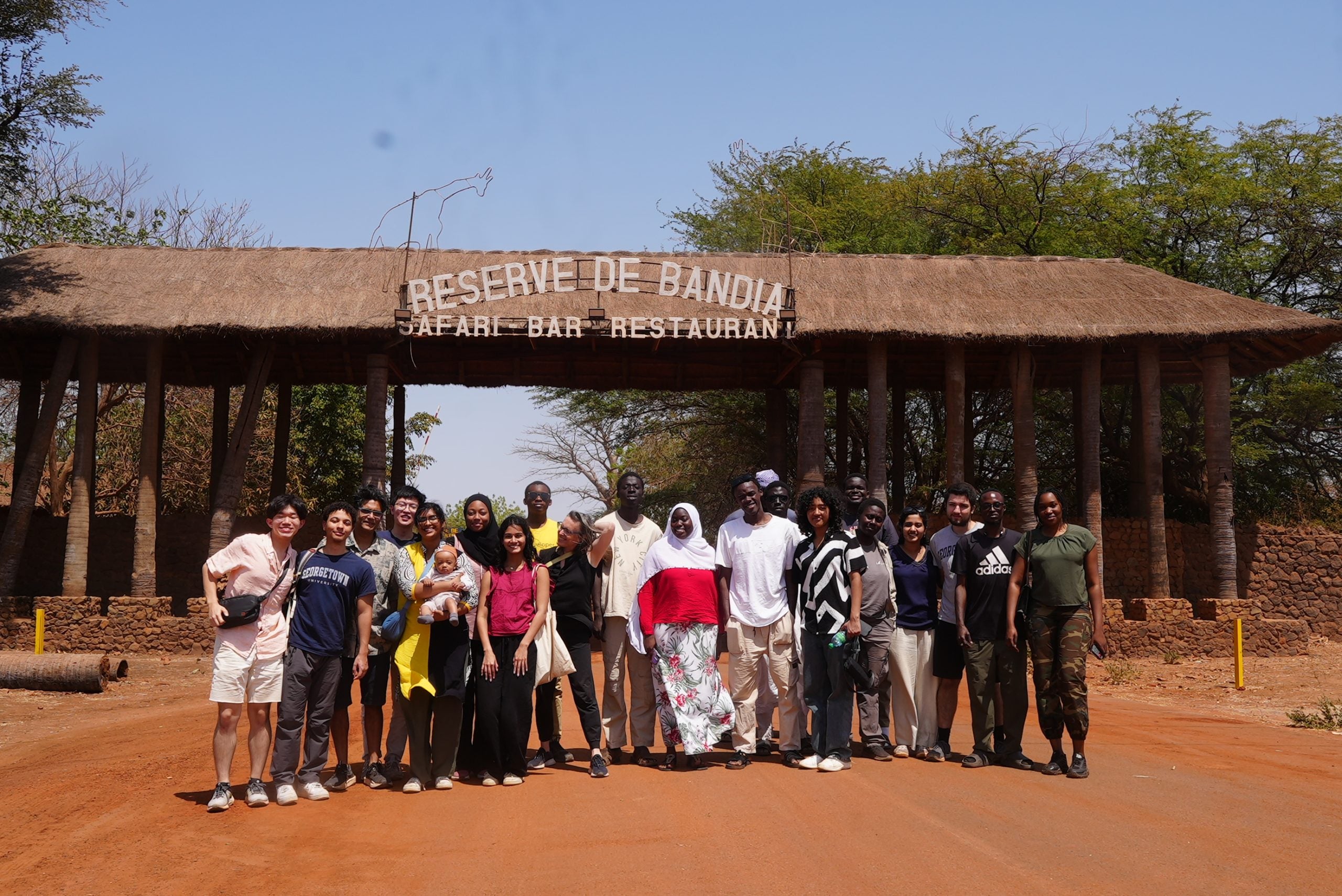
The class is part of the Georgetown Dialogues Initiative and builds on the initiative’s mission to promote civil discourse by engaging faculty from different academic disciplines. Veeraraghavan comes from a computer science and sociology background. Chandler from a critical humanities standpoint. And Ndao from an engineering perspective.
The students also bring their diverse academic backgrounds to the classroom. Georgetown SFS students share their expertise in global affairs and social science, and DAUST students provide the technical expertise to design their projects.
“It’s truly interdisciplinary in its organization and function,” Chandler said. “Building a technology is not just about coding or engineering. It is a social process, as well. Students share their expertise and learn from each other in the process.”
Meet two Hoyas in the class and discover how they collaborated with DAUST students on technology projects for the common good in the West African country.
Mitigating Floods in Dakar
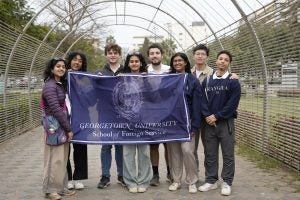
Nikita Tatachar (SFS’26) grew up in Bangalore, India, and witnessed what torrential downpours could do to a community with inadequate flood mitigation infrastructure.
During the course, she connected her experiences to people around Dakar who live in flood-prone neighborhoods, particularly those in Dakar’s Wakhinane neighborhood.
“What ends up happening is there are whole areas of the city that get flooded, and in entire sections of neighborhoods, you can’t move anywhere,” Tatachar said. “There was a familiarity to what I was hearing in Wakhinane as some of the stories I’d heard in Bangalore or read in the papers or heard from friends who lived in those neighborhoods growing up.”
Tatachar’s team is designing affordable solutions to improve urban planning and an information campaign to raise awareness for better infrastructure in Wakhinane. The team is also creating a website called Flood Watch, which will include blueprints for a robot that can clear blocked drains.
“It’s a pressing issue because it isn’t a neighborhood that gets a lot of attention, and they need as much support as they can get, so we want to at least open up the conversation,” Tatachar said.
On their trip to Senegal, Tatachar visited the mayor’s office and met a water engineering expert and an official who manages the distribution of water evacuation pumps used during floods. She also met Wakhinane residents to better understand their experiences with flooding and the concerns they’d want addressed first.
